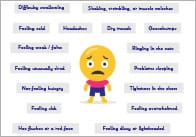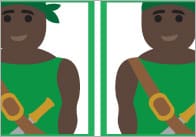Writing Voices
Just out is a new book about writing in schools. Writing Voices is by Teresa Cremin and Debra Myhill, two highly experienced educationists with wide experience of writing projects of very many different kinds. The subtitle of the book – Creating Communities of Writers – says a lot about the spirit in which it is written. It deals with writing across all ages and draws on the feelings and experience of people involved at different levels and in different ways – children, teachers and professional writers. I feel especially delighted with it for three different reasons.
The first reason is that, in the context of writing in schools, it’s a good and unusual thing to address the fact that there are often real tensions about the process of writing. Spelling and handwriting apart (except that for many they’re also part of the tension), people frequently experience difficulties about where to get ideas from and also about the inevitable act of self-exposure involved in putting them down on the page. It’s excellent to have such problems aired and to recognise them as factors among teachers as well as their pupils and, indeed, among professional writers too. That’s my first reason for pleasure. The book feels very authentic.
Second, it’s fantastic from my point of view as both an oral storyteller and a writer that the book gives attention throughout to what people at all levels say about writing. It listens to their voices. It also devotes a whole chapter quite specifically to the role of talk. Usefully recognising that talk and writing differ, it describes the contributions that talk can make. Talk can be important in the generation and shaping of ideas. For children that don’t like writing, for instance, it can be remarkably helpful to give them the chance to write a story they’ve heard, especially when they’ve already talked it through together while working on it in various ways such as story mapping or story boarding. Talking together can also be of great value for children in reviewing and assessing their written texts.
But my third and directly personal reason for excitement about Writing Voices is that I am in it. Alongside the poet Philip Gross and the children’s novelist Linda Newbery, I have a mini-chapter about what it is like to be a writer – what are the processes and how these are linked with what I do with children in schools. One comment in the book on something I say here – that I often get my husband to read what I’ve written and really value him as an editor – has caused great merriment to us here at home. Acknowledging what I say about my husband’s contribution, the comment refers to him as an ‘empathetic response partner’. Here at home, deploying the first letters of these three words, we’ve now taken to referring to him as my ERP (pronounced URP).
Writing Voices – Creating Communities of Writers is published by Routledge
Mary Medlicott is a writer and professional storyteller. Her website address is:www.storyworks.org.uk
Popular Teaching Resources
Stay Up To Date
Sign up for our newsletter and we’ll let you know when we create new early years resources.





